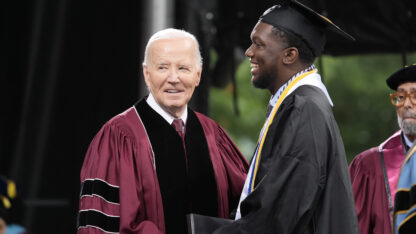Deliberate Non-Vaccination Substantial Cause Of Measles

Damian Dovarganes, File / AP Photo
Measles and whooping cough. They’re not illnesses we tend to think of as being especially common these days.
Dr. Saad Omer, professor of global health at the Rollins School of Public Health at Emory University, says there’s a reason for that: “Vaccines have been the main reason why we’ve eliminated, for example, the indigenous transmission of measles in the U.S.”
Omer led a team that analyzed recent decades of measles and whooping cough outbreaks.
They found that for both diseases, people who do not vaccinate for non-medical reasons made up a substantial proportion of those infected–approximately two-thirds.
The analysis also found that non-medical non-vaccinators contributed more to the early parts of outbreaks. Dr. Omer compared these early cases to tinder that starts fires.
“And just like tinder, when you have tinder and there is some wet wood as well, that also gets burned if there is enough dry wood,” he said. “If you have pockets of susceptibility, even those who get vaccinated can be infected.”
That’s because vaccinations are strong medical interventions against disease, but they’re not perfect and can’t always stand up to a major outbreak.
Based on this research, Omer’s team recommends state policies that make it tougher not to vaccinate.
Georgia permits people to opt out of vaccinations based on religious reasons. Some states have broader exemption policies, which allow people to opt out of vaccinations based on philosophical reasons, while others do not allow exemptions for either religious or philosophical reasons.
9(MDAxODM0MDY4MDEyMTY4NDA3MzI3YjkzMw004))






